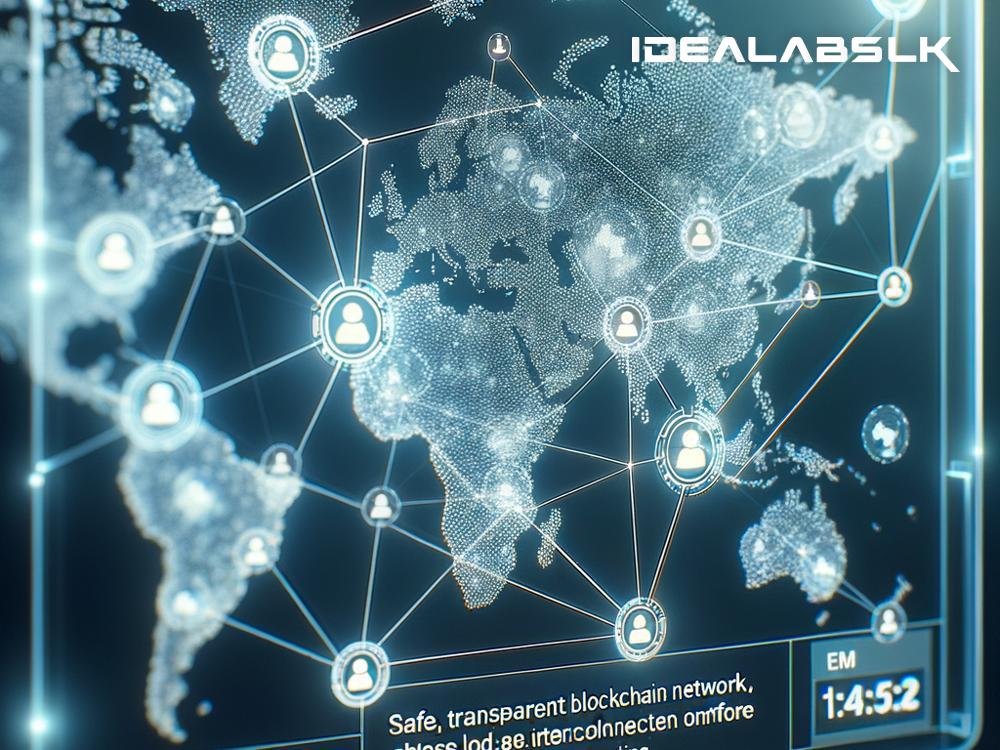How Blockchain Works in Voting Systems: A Simplified Guide
In today’s digital age, where technology influences almost every aspect of our lives, there's growing interest in modernizing traditional systems to enhance efficiency, security, and accessibility. One such system that’s ripe for innovation is voting. Historically, voting has been synonymous with long lines at the polls and cumbersome paper ballots. However, blockchain technology promises to revolutionize this process, potentially making voting more secure, transparent, and convenient than ever before. But what exactly is blockchain, and how can it be applied to voting systems? Let’s break this down into simpler terms.
Understanding Blockchain
Imagine a digital ledger, similar to a notebook, that’s accessible to numerous people at once. This notebook keeps a record of transactions or events in a manner that makes it almost impossible to alter any entry retrospectively. Blockchain is essentially this kind of digital ledger technology. When applied to cryptocurrencies like Bitcoin, blockchain securely records transactions across multiple computers so that the record cannot be altered retroactively without altering all subsequent blocks and the consensus of the network.
Now, picture applying the principles of this technology to a voting system. Each vote would be a ‘block’ in the chain, creating an immutable record of votes that provides enhanced security and transparency compared to traditional voting methods.
The Process Simplified
Here’s how blockchain could be utilized in a voting system, broken down into simple steps:
-
Registration and Verification: Just like in traditional voting, your identity would need to be verified before you can cast your vote. Once verified, you'd receive a unique token or credential that enables you to vote.
-
Casting Your Vote: You would use your unique token to log into the voting system. After making your selection, your vote is encrypted and sent over the internet.
-
Recording the Vote: Your vote then becomes a block, which contains your encrypted vote, a timestamp, and a unique hash (think of it as a digital fingerprint). This block is added to the chain of previous votes or blocks.
-
Vote Counting: Votes (or blocks) are decrypted and tallied. The blockchain ensures that each vote is counted while maintaining the voter's anonymity.
-
Announcing the Results: Once all votes are counted, the results can be announced almost immediately, thanks to the efficiency of digital processing.
The Advantages
So why consider switching to a blockchain-based voting system? Here are some compelling reasons:
-
Security: Blockchain's decentralized nature makes it incredibly secure against hacking attempts. Since each block is linked to the one before and after it, altering a vote would require changing all subsequent blocks, which is practically impossible.
-
Transparency: While individual votes are anonymous, the blockchain ledger is accessible to all parties, allowing for real-time verification of the voting process without compromising voter privacy.
-
Accessibility: With blockchain, you can vote from the comfort of your home using a smartphone or computer, making it easier for those unable to reach polling stations to participate.
-
Efficiency: Counting votes can be done swiftly and accurately, potentially reducing the wait times for election results drastically.
The Challenges
While the benefits are significant, blockchain voting systems also face challenges. These include technology adoption barriers, the digital divide (not everyone has equal access to the necessary technology), and legal and regulatory hurdles. Additionally, ensuring the system is user-friendly and educating the public on its use are vital steps that require attention.
The Future of Voting
Blockchain technology in voting systems is still an emerging field, with pilot projects and studies being conducted around the world. For instance, Estonia has successfully implemented blockchain in several aspects of its digital governance, including certain features in its i-Voting system.
As we move forward, the adoption of blockchain in voting processes could potentially transform how we think about elections, making them more secure, transparent, and accessible. However, it’s a journey that requires careful consideration, robust safeguards, and widespread public trust to fully realize the benefits of this innovative technology in the democratic process.
In conclusion, the integration of blockchain technology into voting systems offers a new horizon for electoral processes worldwide. By leveraging its secure, transparent, and efficient qualities, we could see a future where voting is more accessible and trustworthy than ever before. However, the path toward widespread adoption will require overcoming technological, legal, and social challenges, ensuring that the promise of blockchain voting becomes a reality for all.

